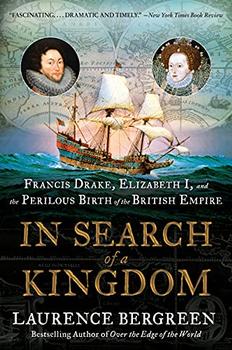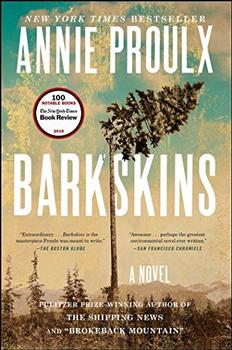Summary | Excerpt | Reviews | Beyond the book | Read-Alikes | Genres & Themes | Author Bio

The Making of America by England's Merchant Adventurers
by John Butman, Simon TargettThree generations of English merchant adventurers--not the Pilgrims, as we have so long believed--were the earliest founders of America. Profit-not piety-was their primary motive.
Some seventy years before the Mayflower sailed, a small group of English merchants formed "The Mysterie, Company, and Fellowship of Merchant Adventurers for the Discovery of Regions, Dominions, Islands, and Places Unknown," the world's first joint-stock company. Back then, in the mid-sixteenth century, England was a small and relatively insignificant kingdom on the periphery of Europe, and it had begun to face a daunting array of social, commercial, and political problems. Struggling with a single export - woolen cloth - the merchants were forced to seek new markets and trading partners, especially as political discord followed the straitened circumstances in which so many English people found themselves.
At first they headed east, and dreamed of Cathay-China, with its silks and exotic luxuries. Eventually, they turned west, and so began a new chapter in world history. The work of reaching the New World required the very latest in navigational science as well as an extraordinary appetite for risk. As this absorbing account shows, innovation and risk-taking were at the heart of the settlement of America, as was the profit motive. Trade and business drove English interest in America, and determined what happened once their ships reached the New World.
The result of extensive archival work and a bold interpretation of the historical record, New World, Inc. draws a portrait of life in London, on the Atlantic, and across the New World that offers a fresh analysis of the founding of American history. In the tradition of the best works of history that make us reconsider the past and better understand the present, Butman and Targett examine the enterprising spirit that inspired European settlement of America and established a national culture of entrepreneurship and innovation that continues to this day.
When we think about the founding of America, we typically envision Pilgrims in black garb and boxy hats, sailing bravely to an untouched landscape where they could worship free from persecution. Yet as John Butman and Simon Targett show in New World, Inc., the Pilgrims were far from being trailblazing colonists. The authors bring to life forgotten and overlooked explorers and they demonstrate that profit, not religious freedom, acted as the driving force for colonization.
With a conversational tone the authors bring a much-needed perspective to the accepted mythology around America's founding. It may not line up with exactly what we were taught as schoolchildren, but it's a story about people seeking prosperity—American through and through...continued
Full Review
 (726 words)
(726 words)
(Reviewed by Rose Rankin).
Elizabeth I was a cautious but crucial supporter of the initial English voyages to the Americas, where merchants and explorers hoped to develop lucrative trade routes, as described in New World, Inc.
Queen Elizabeth was one of the most competent monarchs of the early modern period, and she led England through the transition from minor kingdom to world power. She is rightly regarded as one of England's finest rulers, but it didn't start out that way. In fact, her coronation seemed extremely unlikely when she was young.
 The daughter of Henry VIII and Anne Boleyn, she was removed from the succession shortly after her mother's execution. Henry's obsession with fathering a male heir eventually resulted in a son, and so Elizabeth's ...
The daughter of Henry VIII and Anne Boleyn, she was removed from the succession shortly after her mother's execution. Henry's obsession with fathering a male heir eventually resulted in a son, and so Elizabeth's ...

If you liked New World, Inc., try these:

by Laurence Bergreen
Published 2022
In this grand and thrilling narrative, the acclaimed biographer of Magellan, Columbus, and Marco Polo brings alive the singular life and adventures of Sir Francis Drake, the pirate/explorer/admiral whose mastery of the seas during the reign of Queen Elizabeth I changed the course of history.

by Annie Proulx
Published 2017
From Annie Proulx - the Pulitzer Prize- and National Book Award - winning author of The Shipping News and Brokeback Mountain, comes her masterwork: an epic, dazzling, violent, magnificently dramatic novel about the taking down of the world's forests.